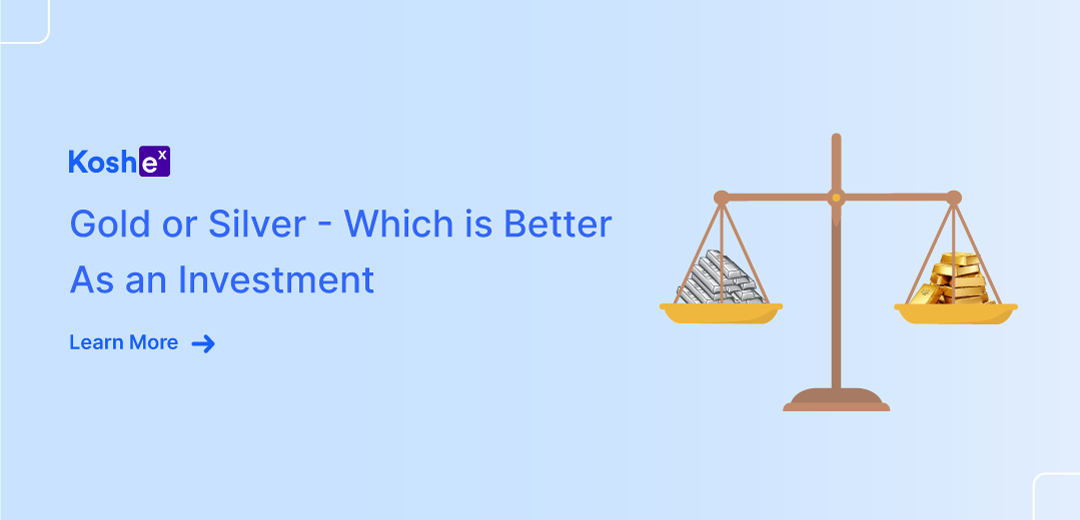The Right Time To Withdraw Your Investments From Mutual Funds
Redeeming your investments from a mutual fund scheme should be thought out and planned properly. If not, you might lose out on returns and we should try our best to avoid that.
Here is a detailed guide to help you understand when to sell your mutual fund.
Before we learn when is the right time to sell your mutual fund, we need to know what mutual funds are.
What Are Mutual Funds?
Mutual funds collect money from several investors and all the money is then invested in a mutual fund scheme. They are managed by highly skilled professionals called fund managers.
The obvious question here is, how is this different from stock trading? Stock trading is when you buy individual stocks of different companies. But mutual funds club the stocks of a couple of companies to maximize returns and reduce risk.
For example, you want to buy stocks for ₹10,000. Firstly, stock trading requires hours of research and months of tracking the data of a particular stock.
You do all your homework and buy the shares of ABC company. Let’s say, ABC company is an IT (Information Technology) firm and it provides its services to clients in Europe and the U.S.
One share of ABC costs ₹2000, and you have bought 5 shares. The problem here is that your profits will solely depend on the performance of ABC. If the value of the shares falls, the stock, worth ₹10,000 earlier, might be worth ₹8,000 later.
So, how do you remedy this? You take your ₹10,000 and invest across the stocks of several companies, which belong to different industries.
In this case, even if the value of one company’s share declines, the other company stocks will be performing well. So, the losses made by one company’s stock will be adjusted by the profits made by the other stocks. This is what mutual funds do.
They take your money and invest across various companies’ stocks, debt instruments, commercial papers, and so on. This helps you to earn returns even during stock market crashes.
Before we proceed further, we would like to let you know that we have a glossary of terms where you can find detailed definitions of the words used in the article. The name of the article is Mutual Funds Terminologies. Please head there if you need to know the meaning of any terminology.
Now that we have a deep understanding of what mutual funds are and how they work, we can see when we should be selling our investments in mutual fund schemes.
When Should You Sell Your Mutual Funds?
As we have mentioned above, exiting a mutual fund should be planned properly but this topic is rarely discussed. There are hundreds, if not thousands of blogs that talk about the right time to buy mutual funds and the right amount to invest in mutual funds.
But there is hardly any that talk about the right time to exit a mutual fund and we feel that topic is more important than anything else.
Ideally, you should sell your investments in a mutual fund after your financial goals have been reached. For example, You want o go on a vacation to Europe and want to save up ₹3 lakhs in 2 years.
You invest the appropriate amount in good mutual funds and you accumulate ₹3 lakhs in 1 year 9 months, before the end date. So, it would be ideal to withdraw your investments as you have accumulated enough for your goal.
On top of that, you should begin withdrawing money from ELSS (Equity Linked Savings Scheme) and moving the money to safer investment choices when the goal is still two to three years away. Let’s understand when are the times you should be selling your funds.
When The Fund Has Been Unprofitable For A While
If a mutual fund plan hasn’t been profitable for a while, you might want to consider selling the units.
In order to get a better picture of the fund’s performance, compare the scheme with its benchmark, its category, and other top-performing plans within the same category before choosing to sell your units.
When you use this technique, you may be able to understand if the scheme is performing poorly or if the market/sector as a whole is going through tumultuous times.
When There Are Changes In The Fund
When you invest in a mutual fund scheme, you should go through the fund’s objectives, asset allocation, and risk exposure to choose the one that suits your financial goals.
However, you should consider selling your units, if the fund house has changed the fund’s investment objectives and they are not in sync with your investment plan, you should consider exiting the scheme.
When The Fund Manager Is Changed
Even though it is not necessary to sell your units when the fund manager is changed, you should exercise caution in this situation.
Since fund managers are important to a scheme’s success, whenever a change is made, you should always check the background and track record of the prospective fund manager.
You can also utilize this to decide whether it is time to start thinking about leaving the fund.
When You’re Rebalancing Your Portfolio
Investors create a diversified investment portfolio to minimize risks and earn higher returns. However, the balance of the portfolio can get skewed over time.
Hence, it is a good idea to revisit your portfolios regularly. So, whenever you find out that certain funds are not contributing to the balance of your portfolio, you can consider replacing them with newer funds.
When There Is An Emergency
Mutual funds are liquid and this means, you can redeem them if there is an emergency in your life. The point to note here is that some funds might take up to 2 working days to reach your bank account.
When There Is A Change In Strategy
If your fund manager begins to invest in financial instruments that do not reflect the mutual fund’s original objectives, you might want to re-examine the fund you are holding.
For example, if your small-cap mutual fund starts investing in a few medium or large-cap stocks, the risk and direction of the fund may change.
Sometimes, when a fund’s name changes its name, its strategies might also change. Hence, if you are comfortable with the direction, you should stick to it, otherwise, you consider selling the funds.
Where Is A Demerger/Merger
If the AMC is demerging or merging, you can continue to stay invested if the combined plan’s performance remains positive.
However, if the plan’s performance is negative, you can switch to a new scheme offered by a different scheme.
Final Thoughts…
We all know investing in a mutual fund is an informed decision, but so is selling your investments from a mutual fund.
It is important to take a look at your portfolio once in a while and see whether you have to sell any of your mutual funds.
It is also crucial that you don’t take any irrational decisions when it comes to withdrawing your funds from mutual fund schemes, as you might lose out on the opportunity to accumulate a sizable corpus.
In another note, if you are looking to invest in mutual funds, Koshex is the right platform for you – You can invest, track and manage all your investments from one place.
We have simplified investments for every Indian to help them achieve their goals and expedite their wealth-creation process.
Head over to our website today and create an account with us in less than 60 seconds, without doing any paperwork.
Sign up today!









Leave a Comment